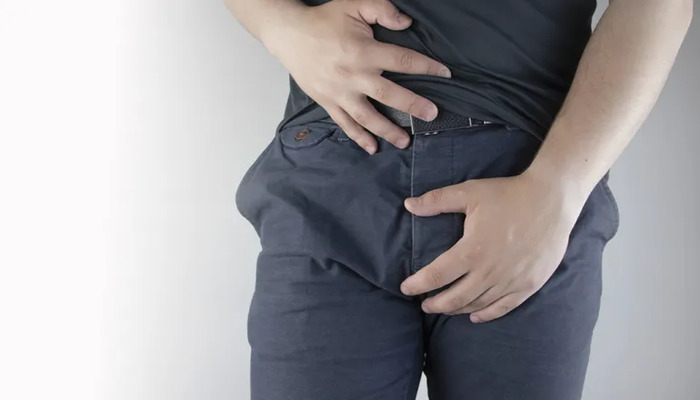If you suspect an inguinal hernia

If you suspect an inguinal hernia due to a lump or pain in the groin area, it's essential to understand the potential signs and steps you should take. Here’s what you should know and do:
### Signs You May Have an Inguinal Hernia
- A soft bulge in the groin area that disappears when you lie down or can be pushed back in.
- A general feeling of discomfort or unease in the lower abdomen.
- Pain or discomfort in the lower abdomen when standing for long periods.
- Occasional sharp pains.
- A sensation of bloating in the abdomen.
Conditions That May Cause Groin Pain
While inguinal hernias are a common cause of groin pain, other conditions such as lymphangitis or endometriosis (in women) could also be the culprits. Lymphangitis involves inflammation due to a bacterial infection in the lymphatic system, and endometriosis involves the growth of uterine lining tissue outside the uterus, which can cause pain in the groin area.
Checking for Hernia Symptoms
If you notice a bulge in the groin area, especially one that becomes more prominent when you cough, bend, or lift heavy objects, it might be an inguinal hernia. This bulge often retracts when lying down or can be gently pushed back in.
Risks of Ignoring a Hernia: Incarceration
Ignoring a hernia can lead to serious complications. One such complication is incarceration, where the protruded part of the intestine gets trapped and can't retract back into the abdomen. This condition can cut off the blood supply to the trapped intestine, leading to tissue death and, potentially, perforation, which can cause peritonitis (inflammation of the abdominal lining) and necessitate emergency surgery.
What to Do If You Suspect an Inguinal Hernia
1. **Seek Medical Advice:** If you experience any of the symptoms described, especially a noticeable bulge in the groin area, it's crucial to consult a healthcare provider for a proper diagnosis.
2. **Avoid Straining:** Until you receive medical advice, avoid activities that could exacerbate the hernia, such as heavy lifting, strenuous exercise, or any activity that increases pressure in the abdominal area.
3. **Monitor Symptoms:** Keep track of any changes in your symptoms, especially if the bulge becomes painful or you cannot push it back in. These changes could indicate incarceration or strangulation of the hernia, requiring immediate medical attention.
In conclusion, while inguinal hernias are common and often treatable, they should not be ignored. Early detection and treatment are key to preventing complications and ensuring a quick recovery.
